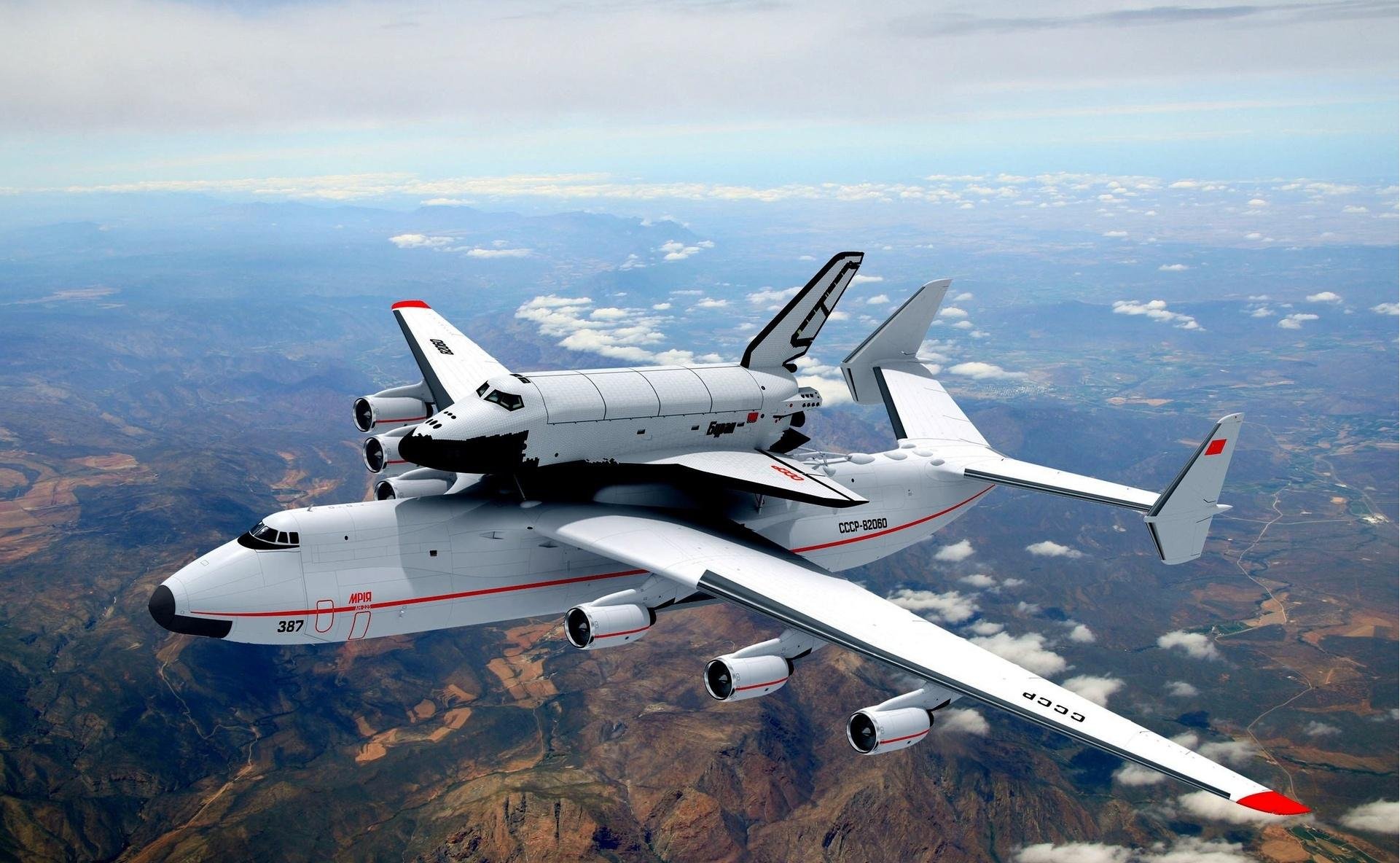Thousands of spectators were meeting the world’s largest plane that was landing for the first time in Perth Airport, Australia on May 19, 2016.
These people gathered just to see the aircraft that was chartered to transport a 117-tonne generator from Czech Republic to a mining (!) company for its operations in the South West of Australia. Traffic around the airport was at a standstill with some several kilometres long as reported by the Australian media because of the thousands cars heading to the airport just to catch a glimpse of the unique aircraft.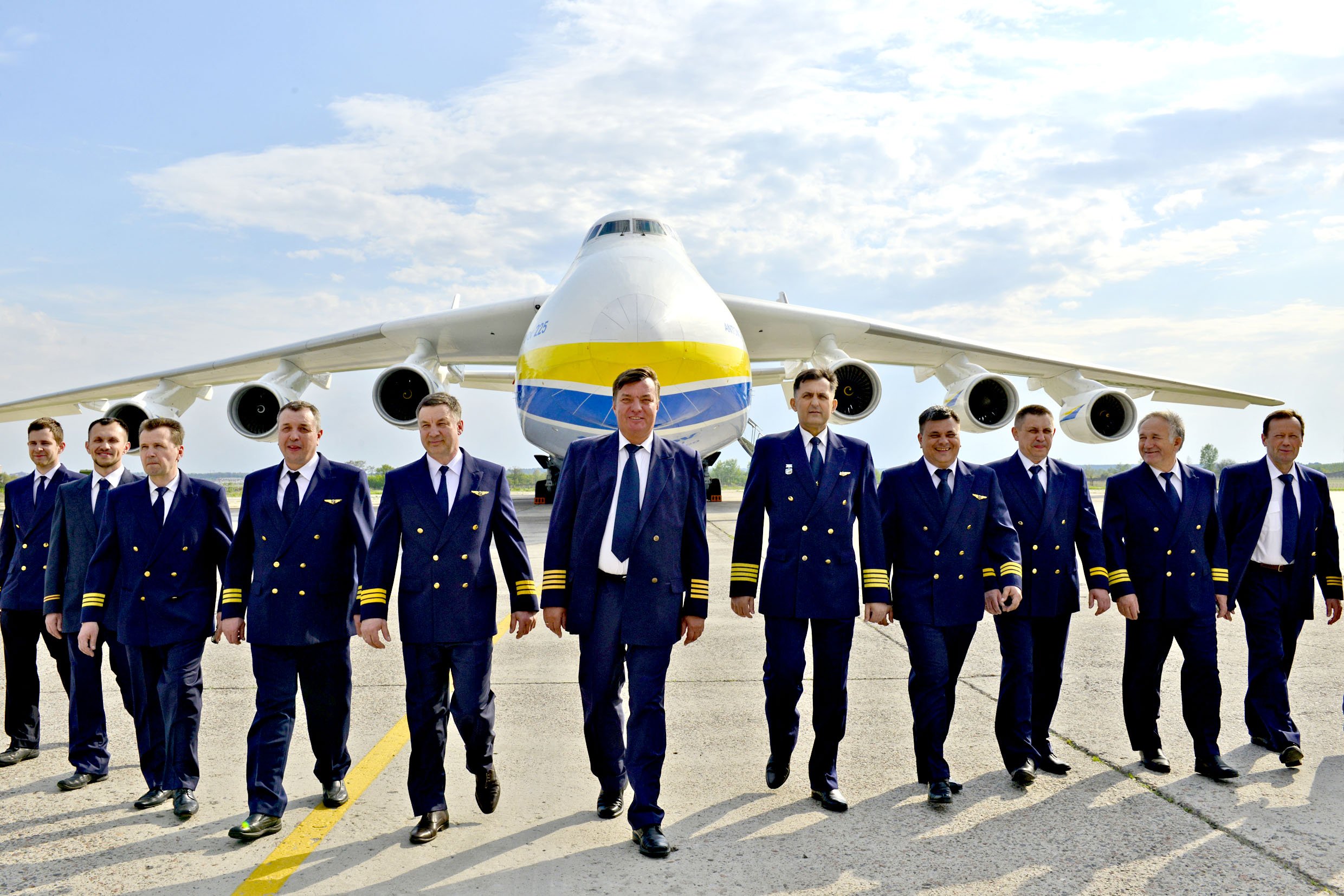
Dream Team of AN-225 | Photo credit: Sergey Naumovich
Antonov An 225 in Perth, Western Australia, 15 May 2016
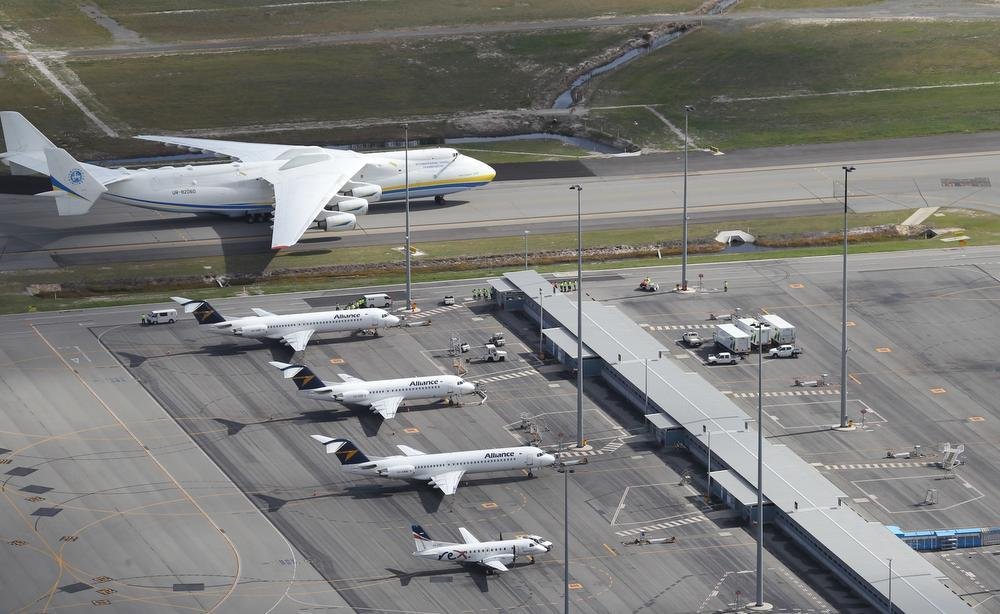
AN-225 Mriya next to other planes in the airport of Perth, Australia | Photo credit
Ladies and gentlemen, let me introduce you the largest aircraft in the world–AN-225 Mriya (stands for ‘Dream’ in Ukrainian, NATO reporting name ‘Cossack’).
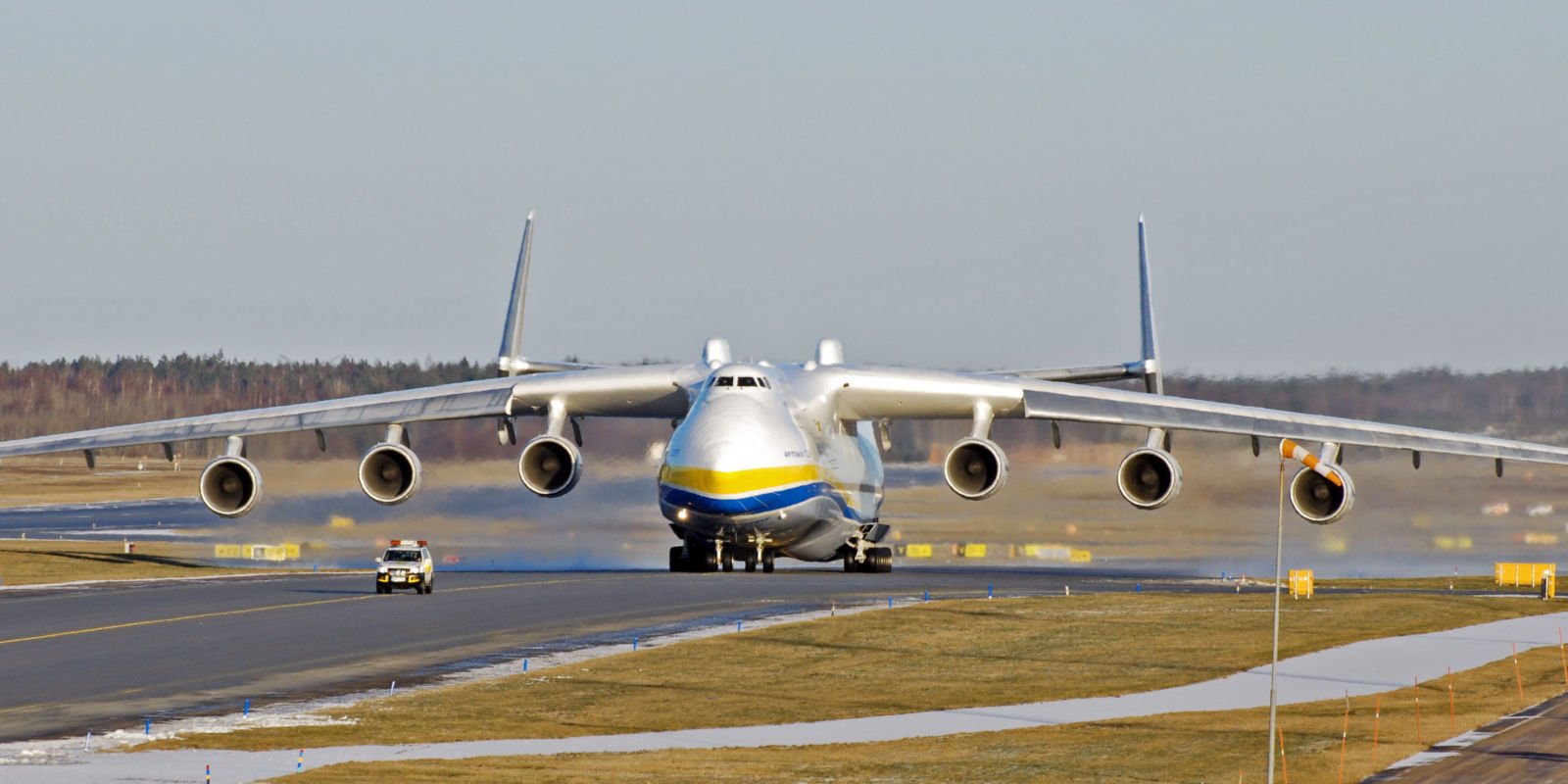
The largest aircraft in the world–AN-225 Mriya | Photo credit
The first time I’ve seen this aircraft flying in the sky with my own eyes my only thought was ‘How this can even fly?’
This was on August 24, 2001 (Independence Day in Ukraine) and this gorgeous airplane was just passing by the house I was staying back then in Kyiv, Ukraine. I still remember that feeling I had–the plane was literally hovering in the air. Later on I saw it perhaps twice in my life on parades related to Ukraine’s Independence Day. I also saw his older and smaller cousin–AN-124 (Ruslan) which was a prototype for Mriya (still pretty impressive aircraft too).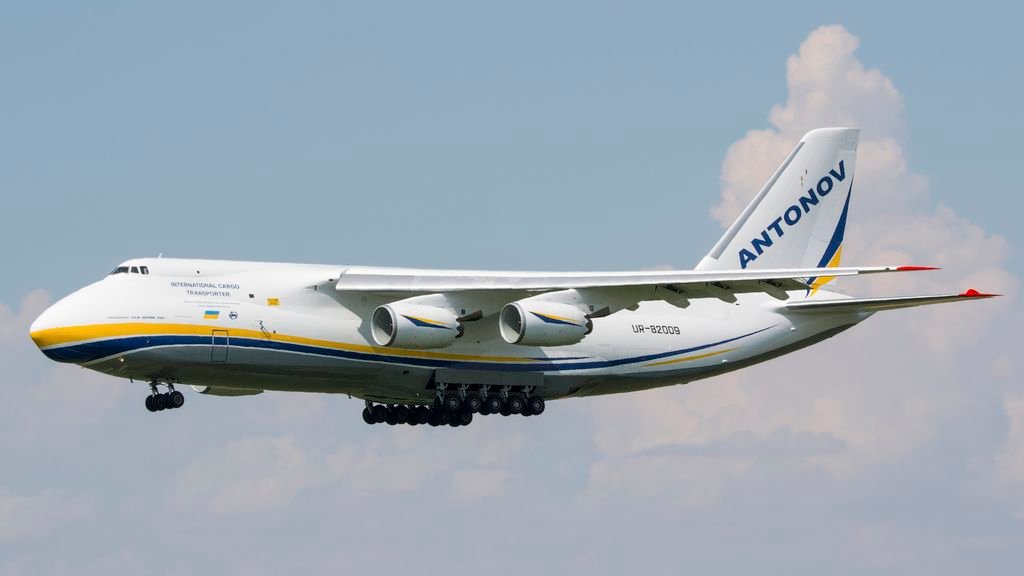
The An-124 (Ruslan)| Photo credit
Since the beginning of the Cold War, the United States of America (USA) and the Soviet Union (USSR), two superpowers, were competing with each other. From the side of the Soviet Union this competition was mainly focused on military sphere and space race, which originated from the missile-based nuclear arms race. With a failure of the USSR in lunar missions, most efforts were concentrated on Earth orbital space stations.

Soviet Union Orbital Space Station Photo credit
In 1985 the Political Bureau of Central Committee of the Communist Party approved a decision about designing and manufacturing an aircraft capable of transporting the Soviet space shuttle ‘Buran’ and serve as a midair launchpad to minimize costs in each case. Needless to say that was another attempt of the Soviet Union to "Catch up and overtake the West", a slogan yet from Stalin epoch. Since the US much earlier successfully modified Boeing 747 airliners (later known as Shuttle Carrier Aircraft or SCA) for the same purpose and conducted tests releasing their Enterprise Space Shuttle during the flight yet in 1977 the Soviets again decided to “catch up and overtake”.
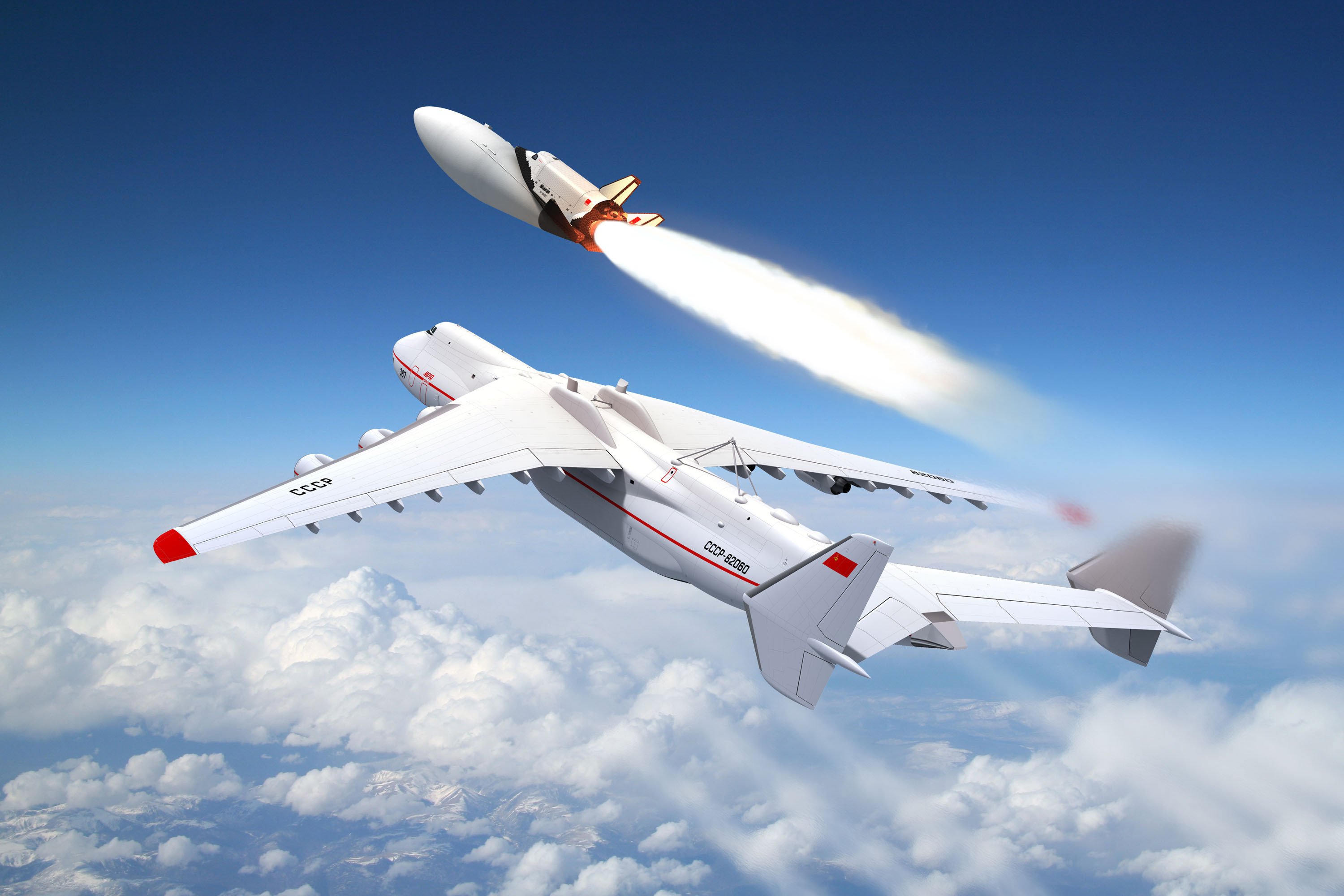
This is how launch of the Buran Space Shuttle with Multi-Purpose Space System was planned initially | Photo credit
Additionally by the information of the Soviet Main Intelligence Agency (GRU, don’t mix with KGB) US Space Shuttle was able to carry a load of 29,5 tonnes to the Earth orbit, which greatly worried political leadership of the USSR, because it was seen as a threat of possible launching the nuclear weapons from the space. Consequently the Soviet Space Shuttle as an analogue of the US Space Shuttle has been developed from 1973 until 1988, which ended as the only space launch of the Shuttle. Yet, to be competitive with the States, Soviets needed an aircraft similar to Shuttle Carrier Aircraft (SCA).
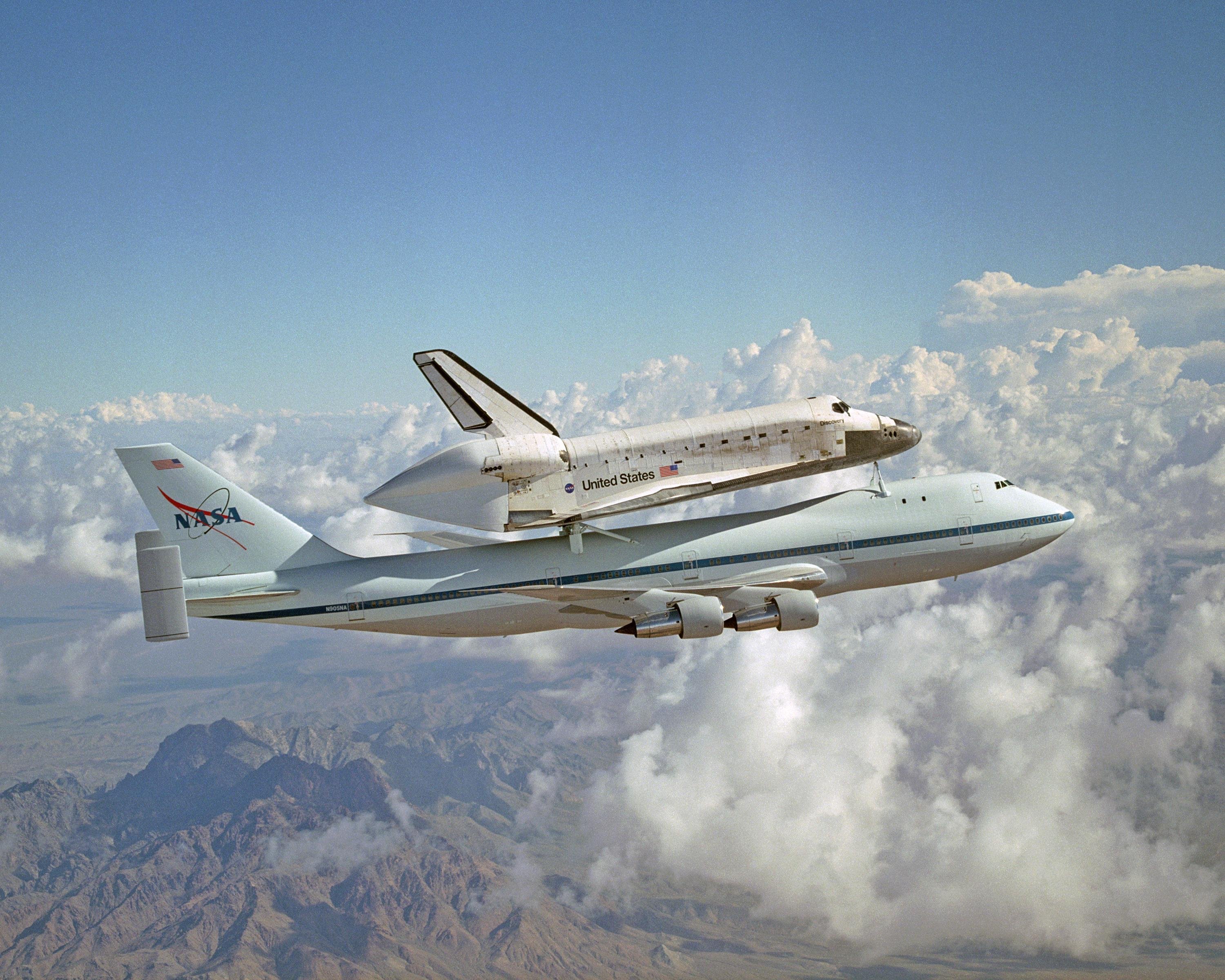
Discovery Space Shuttle Hitches a Ride Into History on SCA 905 | Photo credit
So it required enormous resources of the stagnating Soviet Union and over three years with hundreds of thousands specialists directly or indirectly involved into the process to design and manufacture the AN-225. Since the preceding most successful prototype (AN-124) was developed at Kyiv Mechanical Factory (later renamed into Antonov Design Bureau in the name of the prominent Soviet aircraft designer) it was decided to design and develop the new aircraft there.
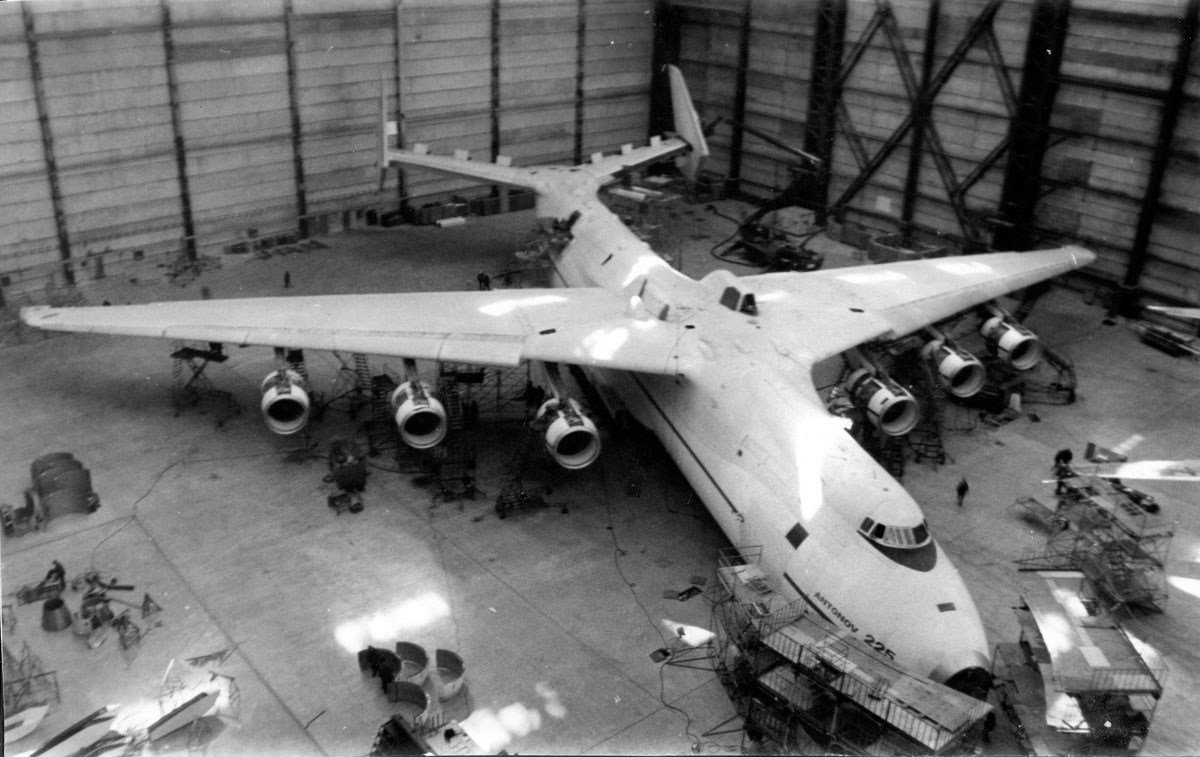
Construction of AN-225 | Photo credit
Basically, AN-225 was the greatly enlarged and modified version of it’s cousin AN-124 (Ruslan)
mentioned above. The length of the aircraft was increased by nearly 15 meters (~49 feet)–from 69.10 m (226 ft 8 in) to 84.00 m, while wingspan increased up to 88.40 m (290 ft) making it nearly as big as a football field! Among other modifications: increased number of engines up to 6 turbofan engines, improved 32 landing wheel system (with first nose wheels and last 3 rows steerable), split twin tail (to avoid problems carrying cargos atop and while launching space shuttles), additional improved air-conditioning system to be used for the shuttles during the flights and many other numerous (mostly strengthening) enhancements.Now, if you are tired of my amateurish language and want some more technical specific information, here is some information from wiki:
Based on Antonov's earlier An-124, the An-225 has fuselage barrel extensions added fore and aft of the wings. The wings also received root extensions to increase span. Two more Progress D-18T turbofan engines were added to the new wing roots, bringing the total to six. An increased-capacity landing gear system with 32 wheels was designed, some of which are steerable, enabling the aircraft to turn within a 60 m (200 ft) wide runway. Like its An-124 predecessor, the An-225 has nose gear designed to kneel so cargo can be more easily loaded and unloaded. Unlike the An-124, which has a rear cargo door and ramp, the An-225 design left these off to save weight, and the empennage design was changed from a single vertical stabilizer to a twin tail with an oversized horizontal stabilizer. The twin tail was essential to enable the plane to carry large, heavy external loads that would disturb the airflow around a conventional tail. Unlike the An-124, the An-225 was not intended for tactical airlifting and is not designed for short-field operation. Initially the An-225 had a maximum gross weight of 600 t (660 short tons), but from 2000 to 2001 the aircraft underwent modifications at a cost of US$20M such as the addition of a reinforced floor, which increased the maximum gross weight to 640 t (710 short tons). Both the earlier and later takeoff weights establish the An-225 as the world's heaviest aircraft, being heavier than the double-deck Airbus A380. It is surpassed in other size-related categories, however: Airbus claims to have improved upon the An-225's maximum landing weight by landing an A380 at 591.7 tonnes (1,304,000 lb) during tests, and the Hughes H-4 Hercules, known as the "Spruce Goose", has a greater wingspan and a greater overall height. But the Spruce Goose is 20% shorter and overall lighter, due to the materials used in its construction. It only flew once, making the An-225 the largest aircraft in the world to fly multiple times. The An-225's pressurized cargo hold is 1,300 m3 (46,000 cu ft) in volume; 6.4 m (21 ft 0 in) wide, 4.4 m (14 ft) high, and 43.35 m (142 ft 3 in) long — longer than the first flight of the Wright Flyer. (from https://en.wikipedia.org/wiki/Antonov_An-225_Mriya)
Specifications of An-225 Mriya:
General characteristics
• Crew: minimum 6 persons
• Length: 84 m (275 ft 7 in)
• Wingspan: 88.4 m (290 ft 0 in)
• Height: 18.1 m (59 ft 5 in)
• Wing area: 905 m2 (9,740 sq ft)
• Aspect ratio: 8.6
• Empty weight: 285,000 kg (628,317 lb)
• Max takeoff weight: 640,000 kg (1,410,958 lb)
• Fuel capacity: 300,000 kg
• Cargo hold – volume 1,300 m3 (46,000 cu ft), length 43.35m, width 6.4m, height 4.4m
• Powerplant: 6 × ZMKB Progress D-18 turbofans, 229.5 kN (51,600 lbf) thrust each
Performance*
• Maximum speed: 850 km/h (528 mph; 459 kn)
• Cruising speed: 800 km/h (497 mph; 432 kn)
• Range: 15,400 km (9,569 mi; 8,315 nmi) with maximum fuel; range with 200 tonnes payload: 4,000 km (2,500 mi)
• Service ceiling: 11,000 m (36,089 ft)
• Wing loading: 662.9 kg/m2 (135.8 lb/sq ft)
• Thrust/weight: 0.234
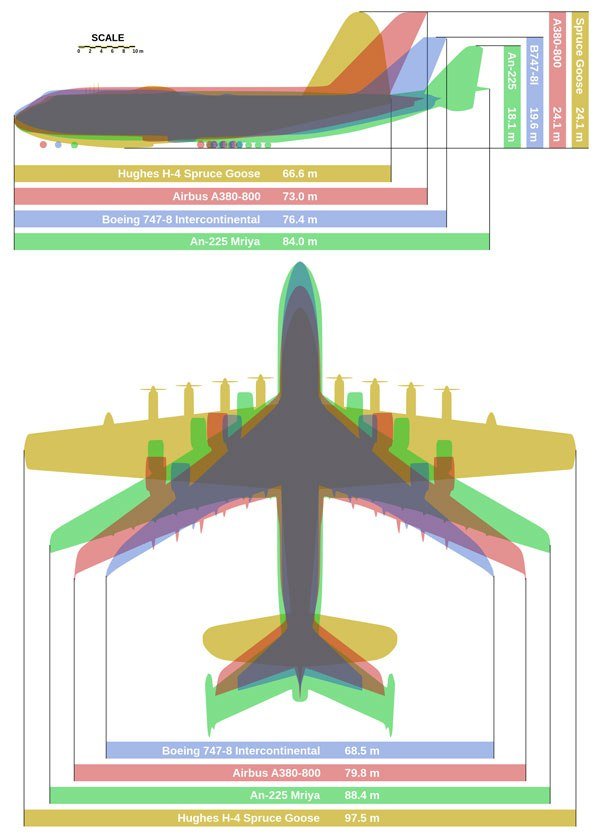
Comparison of Mriya with other planes | Graphic by Clem Tillier
The AN-225 made its first flight on December, 21 1988 breaking 106 world records at once.
Since the plane was longer than the length of the workshop, Mriya was placed diagonally while assembled. So, it took a lot of time and efforts to move it with its nose to the exit. I know it sounds crazy enough, but the idea they come up with was pour out some oil under the tyres just to turn the plane (empty weight of 285 tonnes or 628,315 pounds!). Eventually they did it, but the nose was out of the hangar in November, while it was already snowing. Given the fact that they still had to paint the aircraft, it was necessary to build some additional cover. Impressive 3 tonnes of polyurethane paint were needed just to paint the plane.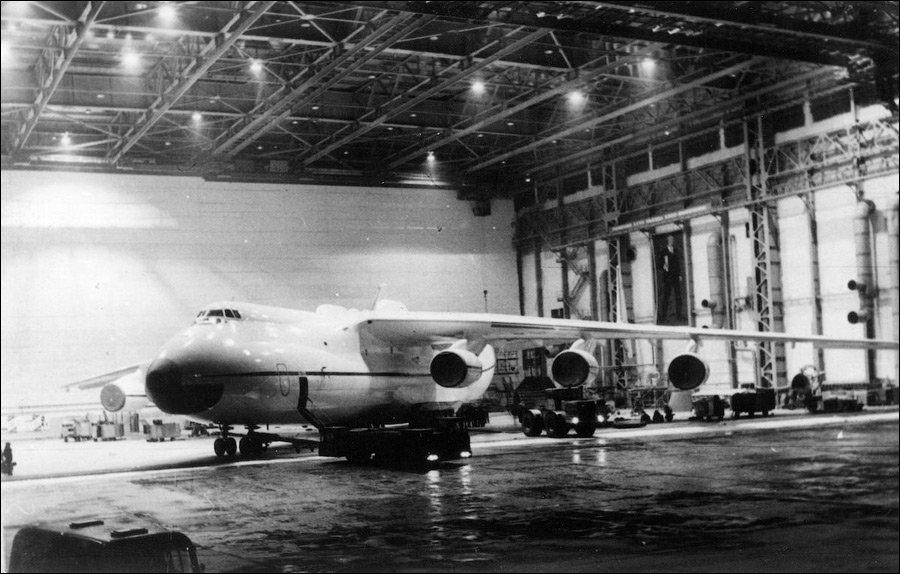
Photo taken during the assembly of the Mriya | Photo credit
While AN-225 was in the works, Soviet Space Shuttle was already finished. Guess that was a coincidence that the Soviet Buran Space Shuttle looked almost the same as the US Space Shuttle (remember I was telling above about Soviet Main Intelligence Agency?). Yet, it had one very important distinction–the whole flight could be unmanned, including takeoff and landing controlled remotely on the contrary to the US Shape Shuttle, takeoff and landing maneuvers of which were to be done manually by the crew.

Buran Space Shuttle on launchpad at Baikonur Cosmodrome | Photo credit
So, the first and only flight the Soviet Buran Space Shuttle made on November 15, 1988. It took 205 minutes for Buran to make two spins around the globe, which made it to The Guinness Book of Records.
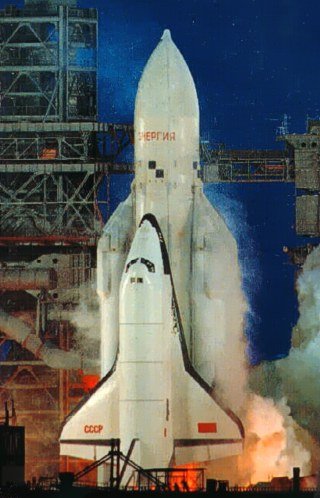
Buran Space Shuttle being launched from Baikonur Cosmodrome | Photo credit
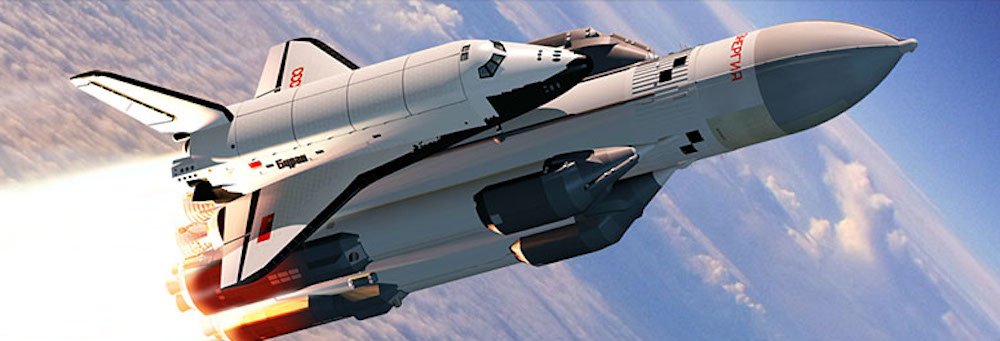
Buran Space Shuttle in the Space | Photo credit
After successful Soviet Space Shuttle launch and all successful AN-225 flights the time for the ultimate goal has come. Mriya plane flew to the Tyuratam Missile and Space Complex (Baikonur Cosmodrome) in Kazakhstan where Buran Space Shuttle was installed on its back.
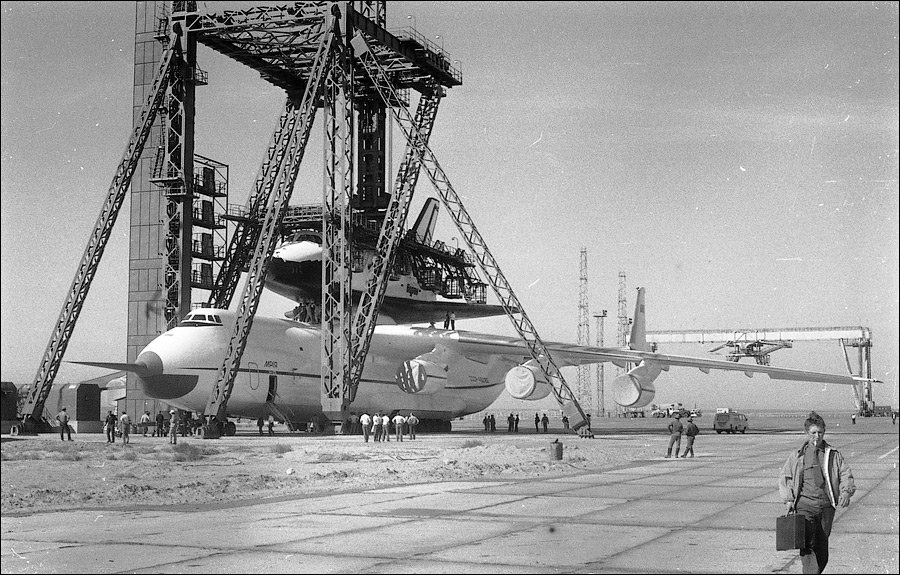
Buran Space Shuttle was installed the back of AN-225 | Photo credit
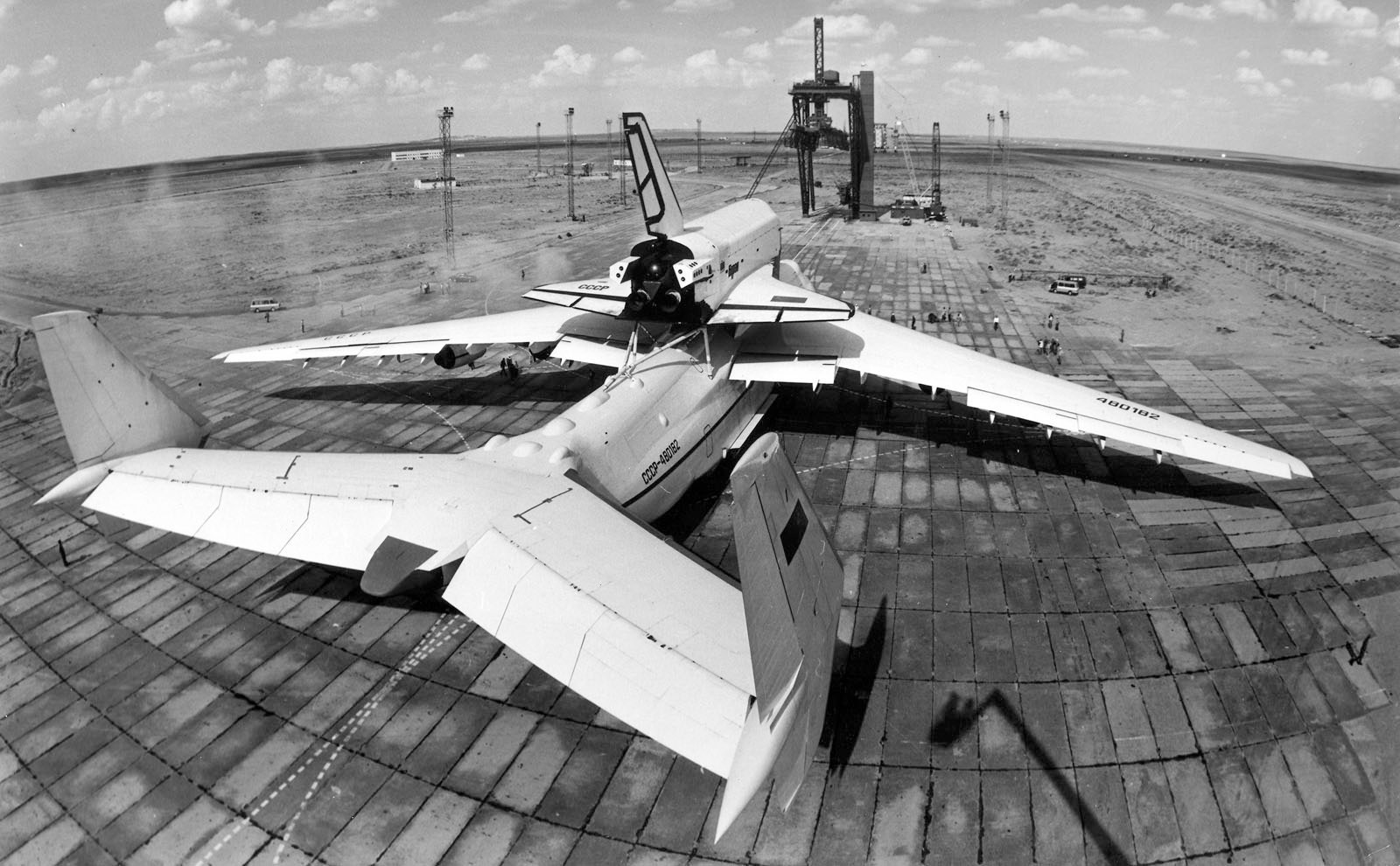
Getting ready for the first flight with Buran | Photo credit
The first flight of the AN-225 with Buran Space Shuttle atop was made on Baikonur Cosmodrome in May, 1989.
Flight of the the AN-225 with Buran Space Shuttle on its back | Photo credit
Later on in June 1989, the AN-225 made its flight to the Paris Airshow in Le Bourget (France) in 1989 with the Buran Space Shuttle atop.
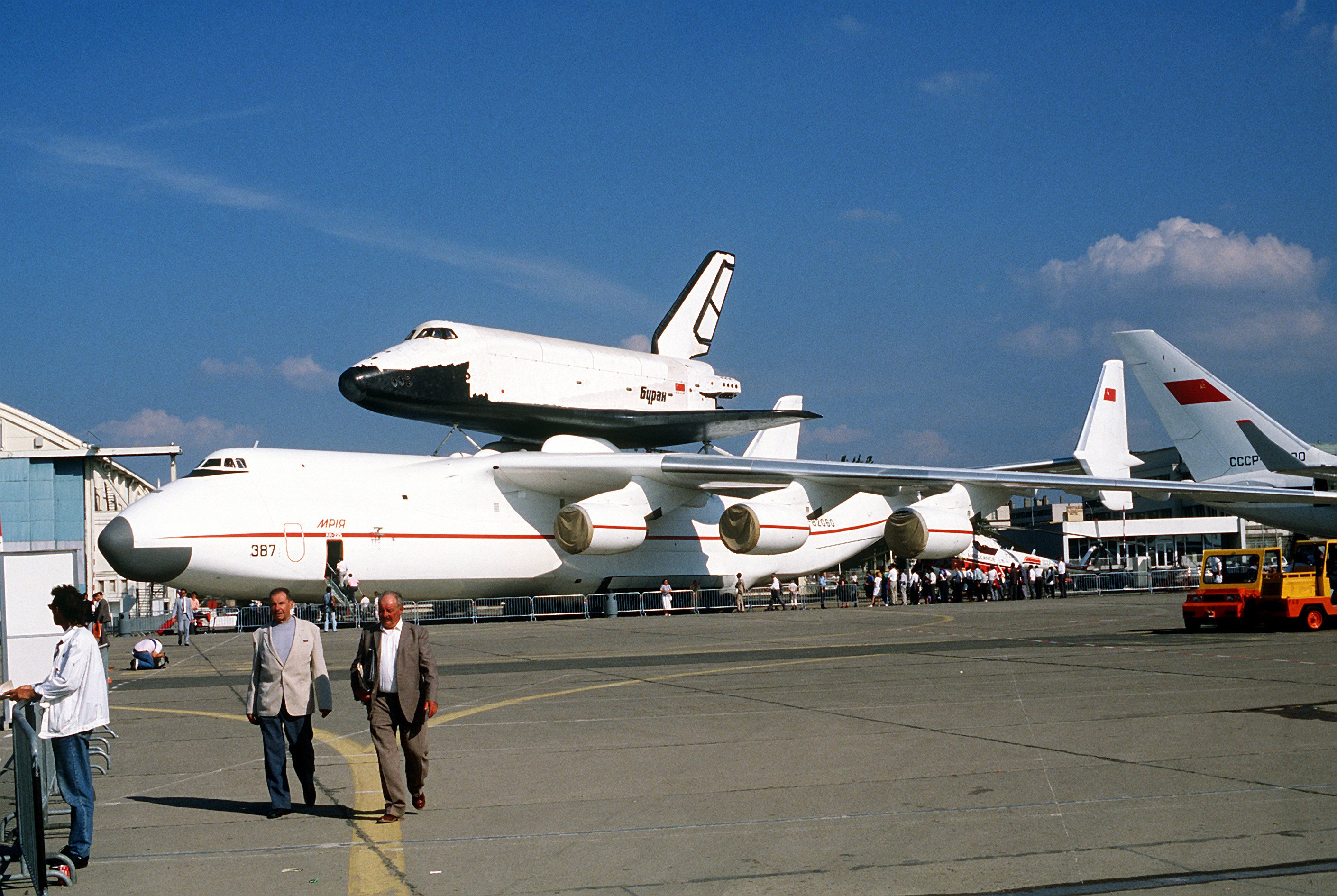
Paris Airshow in Le Bourget (France) in 1989 | Photo credit
In some months, on November 9, 1989 Germans began dismantling the Berlin Wall, thus symbolizing the latter end of the Cold War and subsequent collapse of the Soviet Union. In 1991the Union of Soviet Socialist Republics dissolved and it meant end of the Soviet Shuttle program, and years of oblivion for the Dream-Mriya plane (except some rare flights until 1993).
In 2000 due to increased demand for transportation of super heavy and oversized cargos Antonov corporation began refurbishing the aircraft and re-introduced it in 2001.
Since that time the plane visited numerous airports with various missions.Some pictures from the missions starting 2001:
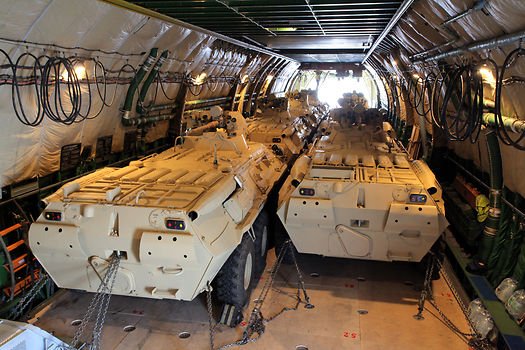
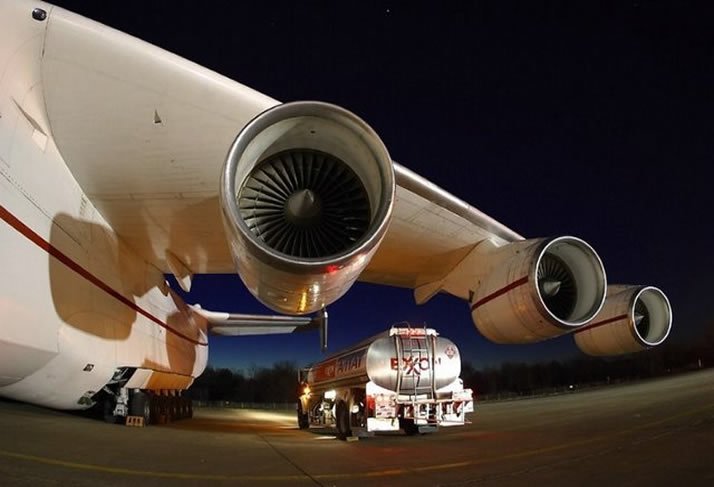
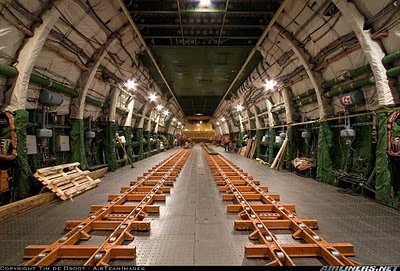
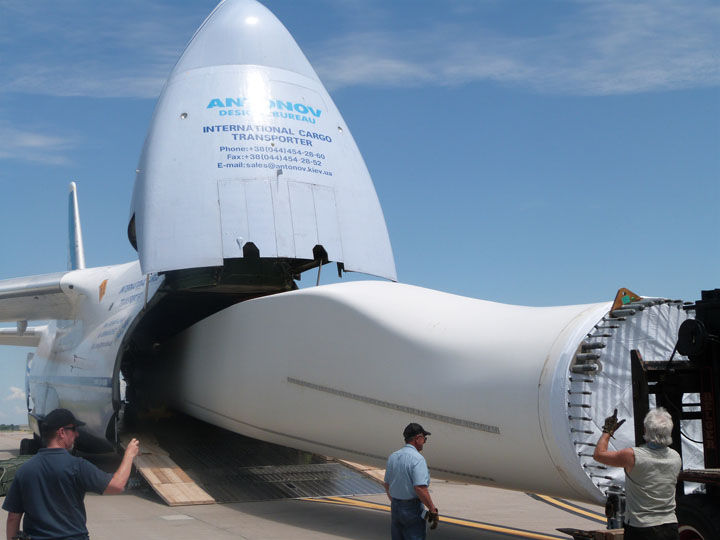
The type's first flight in commercial service departed from Stuttgart, Germany on 3 January 2002, and flew to Thumrait, Oman with 216,000 prepared meals for American military personnel based in the region. This vast number of ready meals was transported on some 375 pallets and weighed 187.5 tons.
The An-225 has since become the workhorse of the Antonov Airlines fleet, transporting objects once thought impossible to move by air, such as 150-tonne generators. It has become an asset to international relief organizations for its ability to quickly transport huge quantities of emergency supplies during disaster relief operations.
The An-225 has been contracted by the Canadian and U.S. governments to transport military supplies to the Middle East in support of coalition forces. An example of the cost of shipping cargo by An-225 was over 2 million DKK (approx. €266,000) for flying a chimney duct from Billund, Denmark to Kazakhstan in 2004.
On 11 August 2009, the heaviest single cargo item ever sent via air freight was loaded onto the An-225. At 16.23 metres (53.2 ft) long and 4.27 metres (14.0 ft) wide, its consignment, a generator for a gas power plant in Armenia along with its loading frame, weighed in at a record 189 tonnes (417,000 lb).
On 11 June 2010, the An-225 carried the world's longest piece of air cargo, two 42-meter long test wind turbine blades from Tianjin, China to Skrydstrup, Denmark.
In total AN-225 Mriya made over 1000 flights since its launch and logged over 4000 flying hours.
Some more interesting facts about AN-225 Mriya:
- The Decepticon character Jetstorm from the 2007 Transformers film line is based on the Antonov An-225. This toy shares its body design with Cybertron Jetfire, Classics Fireflight and Universe Air Raid.
- In the 2010 first person shooter game Battlefield: Bad Company 2, the An-225 is used in the Campaign by Russian Special Forces to carry the "Scalar Superweapon", to be deployed over the US.
- There is yet another Mriya plane completed by 60-70% in stock of Antonov company.
- In total the AN-225 has set over 200 (240 by some sources) world records, including airlifting the world’s heaviest cargo, and the world’s longest cargo.
- The An-225 has a fuel capacity of over 660,000 pounds. That's 14 times more fuel than a 737-800 can carry.
- The An-225 holds the world record for airlifted total payload of 559,577 pounds. That's the equivalent weight of 243 Cessna 172s at max gross weight.
- The An-225 has the capacity to carry 1,500 people, almost three times the capacity of the world’s largest passenger aircraft.
- In 1989 right after An-225 there was another even more ambitious project of An-325 that was very soon abandoned and forgotten.
- The An-225 could easily swallow a Boeing 737 — with space to spare.
- The captain of the AN-225 must be a person with at the least 6 years of experience of piloting AN-124.
- Boeing named its Boeing 747 Dreamlifter and Boeing 787 as Dreamliner (!).
Sources:
• http://www.antonov.com/aircraft/transport-aircraft/an-225-mriya (official site)
• http://gelio.livejournal.com/191632.html
• http://tov-tob.livejournal.com/109503.html
• http://www.buran.ru/htm/memory55.htm
• http://www.buran-energia.com/mriya-antonov/mriya-desc.php
• http://widebodyaircraft.nl/an225tec.htm
• http://www.chapman-freeborn.com/blog/worlds-largest-aircraft-five-interesting-facts-about-the-antonov-an-225/
• http://www.popularmechanics.com/flight/a2951/1280771/
• https://en.wikipedia.org/wiki/Antonov_An-225_Mriya
• https://en.wikipedia.org/wiki/Buran_(spacecraft)
• https://en.wikipedia.org/wiki/Shuttle_Carrier_Aircraft
• http://www.boldmethod.com/blog/lists/2015/03/an-225-largest-aircraft-in-the-world/
• http://ukrainiancrusade.blogspot.com/2016/05/ukrainian-225-mriya-worlds-biggest.html
• http://sometimes-interesting.com/2012/01/19/worlds-largest-aircraft-antonov-an-225-mriya/
• https://www.quora.com/What-are-some-mind-blowing-facts-about-Antonov-An-225-Mriya
• http://twistedsifter.com/2015/01/largest-airplane-ever-built-antonov-an-225-mriya/
• http://theaviationist.com/2013/05/31/an-124/
• http://www.radioaustralia.net.au/international/2016-05-15/antonov-an225-mriya-worlds-largest-plane-touches-down-in-perth/1580412
• http://www.miragenews.com/worlds-largest-aircraft-to-touch-down-in-australia/
• http://www.theaustralian.com.au/news/nation/worlds-biggest-plane-antonov-an225-mriya-lands-in-perth/news-story/d26c63c978be97bffeaa15d1665c6efe
Photo collections:
http://gelio.livejournal.com/193025.html - amazing collection of photos with English captions
http://www.antonov.com/aircraft/transport-aircraft/an-225-mriya/an-225-mriya-photo - official collection of photos


